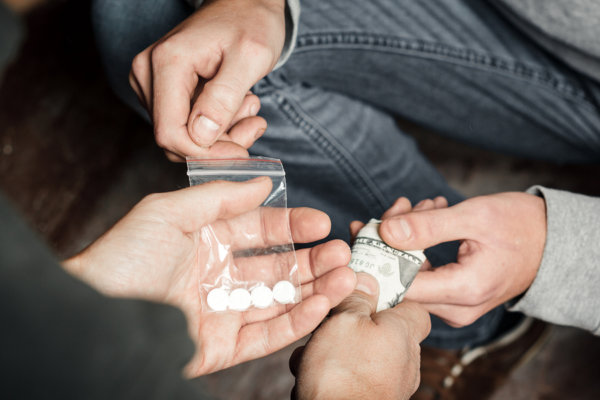
How to Help an Addict – Helping a loved one who struggles with drug or alcohol addiction can be a prolonged and challenging journey. At times, it may become so overwhelming that overlooking the situation may seem easier.
Nevertheless, ignoring the issue may be far more damaging to you, the person’s family and friends, and the individual who is suffering through addiction. As uncomfortable as it may be, it’s vital that you take the time to encourage your loved one to get the professional help they need.
Understanding Drug Addiction
People start using drugs or abusing alcohol for a variety of reasons, perhaps as a result of curiosity, peer pressure, or to feel euphoria or numb emotional pain. Drug use doesn’t automatically result in escalating abuse, and alcohol abuse doesn’t always lead to addiction. For this reason, it’s often hard to identify precisely when substance use goes from merely concerning to problematic or severe.
Sometimes, drug use and addiction are not so much about the frequency in which a person uses. Rather, they are about the person’s motivation in turning to drugs or alcohol initially and the consequences of abuse. For example, some people smoke marijuana on a regular basis but may do so because they believe it helps to relieve pain. This habit may not have any adverse effects on their lives.
Still, drug or alcohol abuse can lead to issues such as declining mental and physical health, poor performance at work or school, legal or financial problems, or strained relationships with friends and family. If these issues are occurring, then the use of the substance has quite obviously become problematic.
Not everyone who uses drugs or drinks alcohol will become addicted. The likelihood that a person will develop an addiction to drugs is based on a variety of factors, including the following:
- Having a family history of addiction
- Having a genetic predisposition to addiction
- Experiencing abuse, neglect, or other trauma
- Having a mental health condition, such as depression or anxiety
- Using a non-oral method of administration, such as snorting or injecting
- Using drugs or alcohol early in life, such as during the teen years
How to Help an Addict: Symptoms of Drug Abuse
There are many outward signs that may indicate drug use. Each drug has its own unique signs of abuse, but some general indications that your loved one may be abusing drugs or alcohol include the following:
- Mood swings
- Social isolation
- Red or glassy eyes
- Runny or stuffy nose
- Lack of energy or motivation
- Sudden changes in behavior
- Poor performance at school or work
- Poor hygiene and unkempt appearance
- Loss of interest in previously enjoyed activities
- Changes in sleeping patterns
- Sudden requests for money
- Dramatically increased spending

How to Help an Addict Directly
Helping a loved one engaging in alcohol or drug abuse is never easy. Unfortunately, there’s no one surefire way to get a person to stop using. The following are some suggestions that may go a long way in helping a loved one get treatment and ultimately enter long-term recovery.
Educate Yourself About Addiction
Unless you have knowledge about addiction and the signs of substance abuse, it might not be easy to recognize evidence that is right in front of you. While some addictions are glaringly apparent, others, such as those involving prescription drug misuse, may fly under the radar.
Addiction is a complex disorder, and by taking the time to understand your loved one’s disease and how it impacts them can be very beneficial to both you and the person you love. It also helps you be more aware of the signs that the person of concern desperately needs help.
Critically, you must understand that addiction is considered to be a chronic, relapsing disease, not unlike diabetes or hypertension. Most modern experts no longer regard addiction simply as a moral or behavioral failure. Nowadays, experts believe that specialized, comprehensive treatment is most beneficial when addiction is approached as a long-term disease.
Don’t Enable
It can be extremely difficult for family members and friends when addiction takes hold. Often, loved ones have enabled the person’s addiction without realizing that was what they were doing. But you can’t rescue an addict—you have to let them experience the consequences of their disease because this may be the only way they will seek help. Oftentimes, a person in the throes of addiction is unable or unwilling to change until they are forced.
Moreover, do not financially support the addict or addiction. Many family members and friends will buy the person groceries, offer financial assistance to pay court fines or attorneys, pay rent, or even give them money directly to purchase their drug(s) of choice. Enabling only prolongs the disease since the addict can thereby avoid the most severe consequences.
Offer Your Support
People suffering from addiction don’t always understand how much their family and friends love them and worry about their well-being. Be vocal with your loved one about your concerns, and don’t wait for him or her to hit “rock bottom” to express your feeling. Crucially, continually let them know that your plan is to offer them love and support during their entire recovery journey.
Get Support From Others
It can become tiresome doing all the supporting by yourself, but families have other options for help. Groups such as Alcoholics Anonymous and Narcotics Anonymous cater to the individual. There are also family support groups, including Al-Anon and Nar-Anon.
In some cases, community outreach services or members of the clergy can also help. Most importantly, however, they need to be encouraged to seek long-term professional help as soon as possible.

Encourage the Person to Get Treatment
As with other conditions, the earlier an addiction is treated, the better the outcome may be. But initially, you will likely be met with denial or excuses as to why they are unable or unwilling to seek treatment. You may have to be persistent for some time about how vital t is that they enter a specialized treatment for their addiction.
Another option is to stage an intervention. Although these are frequently difficult to do, especially from an emotional standpoint, an intervention may be precisely what a loved one needs if they are sinking deep into addiction. Consider consulting and using an intervention specialist to help navigate this process.
By consulting an addiction specialist, such as a licensed alcohol and drug counselor, social worker, psychologist, or interventionist, you can receive a great deal of help coordinating an effective intervention. An addiction professional will take into account your loved one’s individual circumstances, recommend the best approach, and help guide you in what type of treatment and aftercare plan is likely to work best.
How to Help an Addict: What Not to Do
When having a conversation with a loved one about getting treatment for their addiction, avoid preaching, lecturing, threatening, or demoralizing.
Do not attempt to make them feel ashamed or guilty.
Do not enable them in any way.
Do not lie to others or make excuses for their behavior
Do not blame yourself or feel responsible for their problems.
Do not argue with him or her when they are actively using drugs.
If they are intoxicated or high, they will not be able to hold a rational conversation and will probably not be open to what you have to say.
Getting Treatment for Addiction
If you are seeking treatment for a loved one, contact us as soon as possible. Recovery By The Sea offers comprehensive treatment for addiction in both partial hospitalization and outpatient formats. Our approach is comprised of services essential for the process of recovery, including behavioral therapy, counseling, group support, medication-assisted therapy, aftercare, and more.
We are dedicated to providing our clients with the tools and support they need to recover, avoid relapse, and enjoy long-term wellness and sobriety. Contact us today to find out how we can help!
Related: What is the Mojo Drug?